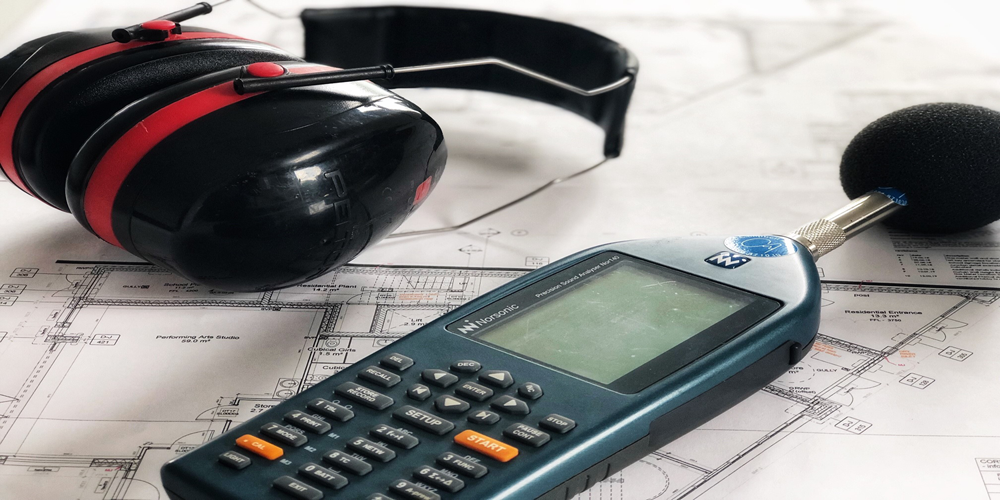
The Purpose of Sound Testing of Property
Sound testing is an essential aspect of property development that ensures the acoustic performance of a building meets the required standards. This process involves measuring the levels of sound insulation between adjoining properties to assess the impact of noise transfer from one area to another. The purpose of sound testing is to identify any issues and provide recommendations for remedial actions that will improve the acoustic performance of the building.
The importance of sound testing cannot be overstated as noise pollution has been shown to have negative effects on health, productivity, and general well-being. Living in a noisy environment can cause stress, sleep disturbance, and hearing impairment, which can ultimately affect the quality of life of the occupants. Therefore, it is important to ensure that buildings are acoustically insulated to mitigate the impact of noise pollution.

Sound Testing Recommendations
Sound testing is typically conducted in two stages: pre-completion testing and post-completion testing. Pre-completion testing is carried out during the construction phase of the building to identify any issues and provide recommendations for remedial action. Post-completion testing is carried out after the building is occupied to ensure that it meets the required acoustic performance standards.
The results of the sound tests are presented in the form of sound insulation values (measured in decibels) and a report that highlights any issues and recommendations for improvement. The values are compared against the minimum standards set out in building regulations and other relevant guidelines. These standards vary depending on the type of property and the intended use of the space. For example, the minimum sound insulation standards for residential buildings are different from those for commercial buildings.
Sound testing is essential for a number of reasons. Firstly, it ensures that buildings are compliant with building regulations and other relevant guidelines. Compliance with these standards is a legal requirement and failure to meet them can result in legal action being taken against the developer or owner of the property.
Secondly, sound testing helps to improve the quality of life of the occupants by reducing the impact of noise pollution. This is particularly important for residential buildings, where noise from adjacent properties can be a significant source of disturbance. By ensuring that buildings are acoustically insulated, the occupants can enjoy a quieter and more comfortable living environment.
Thirdly, sound testing can help to improve the value of a property. A building that has been sound tested and certified to meet the required standards is likely to be more attractive to potential buyers or tenants. This is because they can be assured of the quality of the building’s acoustic performance, which is an important factor for many people when choosing a property.
Sound testing is also important for ensuring that the building meets the needs of its intended use. For example, a building that is intended for use as a music studio or a cinema requires a higher level of sound insulation than a residential building. By conducting sound tests, the developer can ensure that the building meets the specific requirements of its intended use.
Sound testing is also beneficial for architects, engineers, and other building professionals. By conducting sound tests, they can identify any design flaws that may impact the acoustic performance of the building. This enables them to make necessary changes before construction begins, which can save time and money in the long run.
Furthermore, sound testing can help to reduce the likelihood of disputes between neighbors. In residential buildings, noise from adjacent properties can be a source of tension between occupants. By ensuring that the building meets the required sound insulation standards, the likelihood of disputes arising can be reduced.
It is worth noting that sound testing is not a one-time process. The acoustic performance of a building can deteriorate over time due to wear and tear, changes in the building’s use, or changes in the adjacent environment. Therefore, it is important to conduct regular sound tests to ensure that the building continues to meet the required standards.
In conclusion, sound testing is an essential aspect of property development that ensures the acoustic performance of a building meets the required standards. It has numerous benefits, including improving the quality of life of the occupants, ensuring compliance with building regulations, increasing the value of the property, and reducing the likelihood of disputes between neighbors. Therefore, it is important to conduct sound tests during the construction phase and regularly after the building is occupied to ensure that it continues to meet the required standards.
If you need help with the acoustic design and sound testing to comply with the lease condition/s on your project; or, you have a problem with raised noise levels due to neighbours changing their floor construction, we provide an acoustic design and sound testing solution to achieve compliance with your lease condition. Please visit our website now at www.aptsoundtesting.co.uk or contact us now at 01525 303 905.